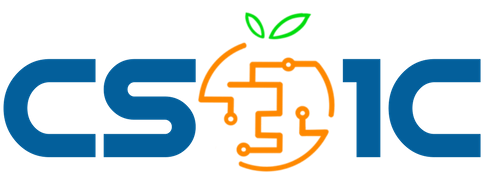
Professional learning communities can be especially helpful for computer science teachers, who are constantly faced with new challenges arising from the ever-evolving field of computer science.
We offered a professional learning community (PLC), which we intend to continue for teachers enrolled in the program going forward. The PLC offered as part of the NSF-funded project is described below. While the future Professional Learning Community as part of this program may not be quite as extensive, we do intend to offer a hybrid PLC, with both online and face-to-face components.
Video Clubs. We see video as a particularly powerful tool for supporting teachers in learning to teach computer science courses. Video-based professional development affords teachers opportunities to slow down the work of teaching and examine how instructional interactions unfold, the nature and development of student thinking over the course of a lesson, and different ways that teaching influenced student learning. Research has also shown that when teachers collaboratively analyze video to learn about students’ thinking, teachers can develop the type of questioning practices that focus more on students reasoning and problem solving and facilitate student to student interactions. At the same time, they develop a conceptual framework of the work of teaching as “working on student ideas. The video club will function as one component of the PLC for the teachers. Each cohort will be divided into smaller groups (10-12 teachers). Each video club group will meet in person at the beginning of the school year to establish norms for viewing video in supportive and constructive ways. Participants will use an online space (e.g. Canvas) where they can upload and share video. This online space also supports teachers in collaboratively analyzing video. The facilitators of the video club, along with participating teachers, will establish areas of focus for each meeting and the teachers will self capture video and upload segments for the group to view, annotate, and discuss.
Face-to-face coaching seminars will take place at local school districts approximately 10 times per year. During the first session, each cohort will receive instruction in the PLC and Video Club software platforms. In subsequent seminars, coaches will organize the sharing of best practices, materials, and resources in teaching computer science among participants. Experienced and effective teachers from secondary and postsecondary institutions will be invited to demonstrate teaching computer science lessons, using engaging activities and effective instructional strategies in a microteaching format, where the course is video-taped to allow for reflection and discussion by teachers attending the seminar. Teachers can also use this time to collaborate on lesson design, development of assessments of student learning, and analyzing artifacts of student work.
Virtual Collaborative Group. The third component of the PLC will be an on-line learning environment where our teachers can collaboratively communicate about best practices and solve problems that emerged during daily teaching activities. This on-line system will complement the video club and face-to-face meetings by providing a space for teachers to share resources and reflect on their practice on a regular basis. This component will be especially beneficial for computer science teachers, who are typically the only school personnel teaching these courses and thus do not have access to colleagues in the building to support them in their work. During the course of the intervention, the system will be closely monitored by key project personnel in order to provide guidance to participating teachers, to review content to develop a Frequently Asked Questions module based on recurring topics, and to inform the ongoing design of the professional learning system based on teacher needs.
Summer Institute on Equity in CS Education. Finally, we will offer a series of professional development seminars focused on the unique pedagogical practices for teaching under-represented student populations, such as complex instruction, and “noticing” practices to achieve equity in teaching. These seminars will leverage existing research that finds that females and students from non-dominant communities are not typically provided with opportunities to learn rigorous science and mathematics in K12 settings. Teachers will draw on the content of these seminars to reflect on their efforts to achieve equity in their teaching and consider ways to adapt the lessons and materials to be more responsive and inclusive to the needs of their students.
